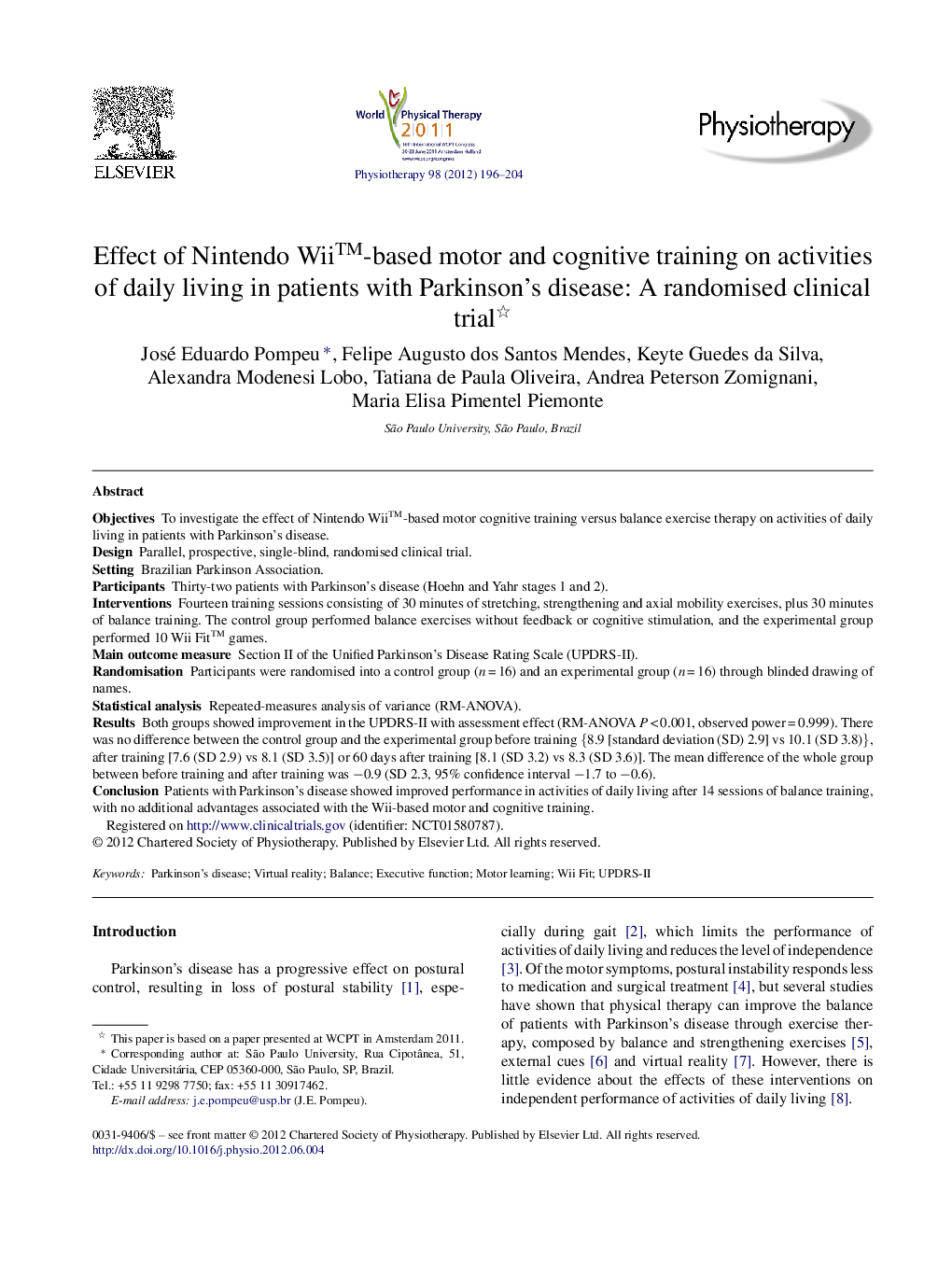| Article ID | Journal | Published Year | Pages | File Type |
|---|---|---|---|---|
| 2627367 | Physiotherapy | 2012 | 9 Pages |
ObjectivesTo investigate the effect of Nintendo Wii™-based motor cognitive training versus balance exercise therapy on activities of daily living in patients with Parkinson's disease.DesignParallel, prospective, single-blind, randomised clinical trial.SettingBrazilian Parkinson Association.ParticipantsThirty-two patients with Parkinson's disease (Hoehn and Yahr stages 1 and 2).InterventionsFourteen training sessions consisting of 30 minutes of stretching, strengthening and axial mobility exercises, plus 30 minutes of balance training. The control group performed balance exercises without feedback or cognitive stimulation, and the experimental group performed 10 Wii Fit™ games.Main outcome measureSection II of the Unified Parkinson's Disease Rating Scale (UPDRS-II).RandomisationParticipants were randomised into a control group (n = 16) and an experimental group (n = 16) through blinded drawing of names.Statistical analysisRepeated-measures analysis of variance (RM-ANOVA).ResultsBoth groups showed improvement in the UPDRS-II with assessment effect (RM-ANOVA P < 0.001, observed power = 0.999). There was no difference between the control group and the experimental group before training {8.9 [standard deviation (SD) 2.9] vs 10.1 (SD 3.8)}, after training [7.6 (SD 2.9) vs 8.1 (SD 3.5)] or 60 days after training [8.1 (SD 3.2) vs 8.3 (SD 3.6)]. The mean difference of the whole group between before training and after training was −0.9 (SD 2.3, 95% confidence interval −1.7 to −0.6).ConclusionPatients with Parkinson's disease showed improved performance in activities of daily living after 14 sessions of balance training, with no additional advantages associated with the Wii-based motor and cognitive training.Registered on http://www.clinicaltrials.gov (identifier: NCT01580787).
